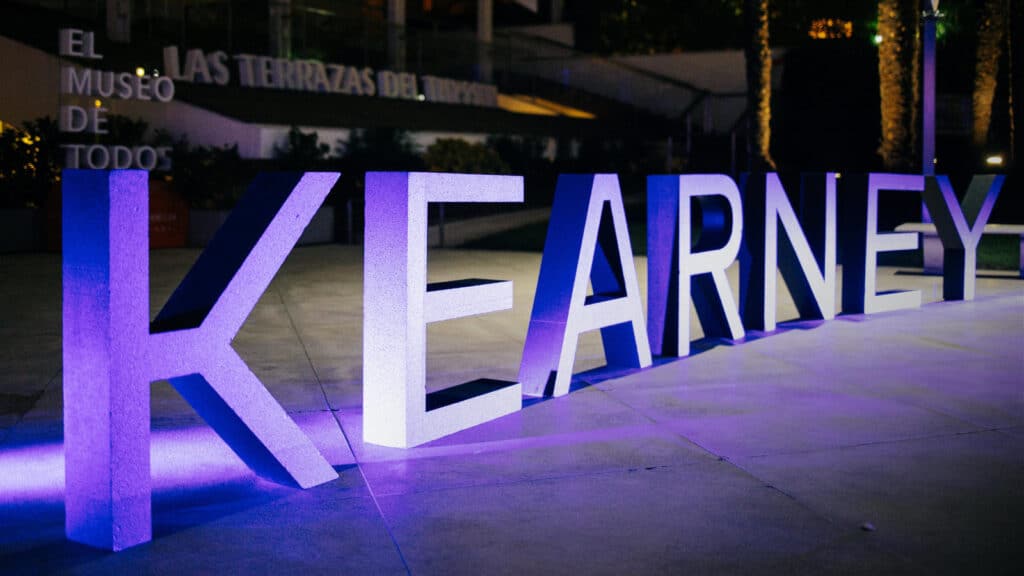If you want to get a job at Kearney, you might ask yourself how the Kearney recruitment process works.
In this in-depth guide you’ll learn:
- How to write a resume and cover letter that pass the Kearney screening phase
- How to pass the Kearney recruitment test
- How to stand out during Kearney fit interviews
- How to ace the Kearney case interviews
- And lots more
So, if you want to go through the rigorous and challenging Kearney hiring process successfully, this guide is for you.
Let’s get started!
Table of Contents
An Overview Of The Kearney Recruitment Process
From the time you apply until you accept the job offer, you will have to progress through a series of steps in the Kearney recruitment process.
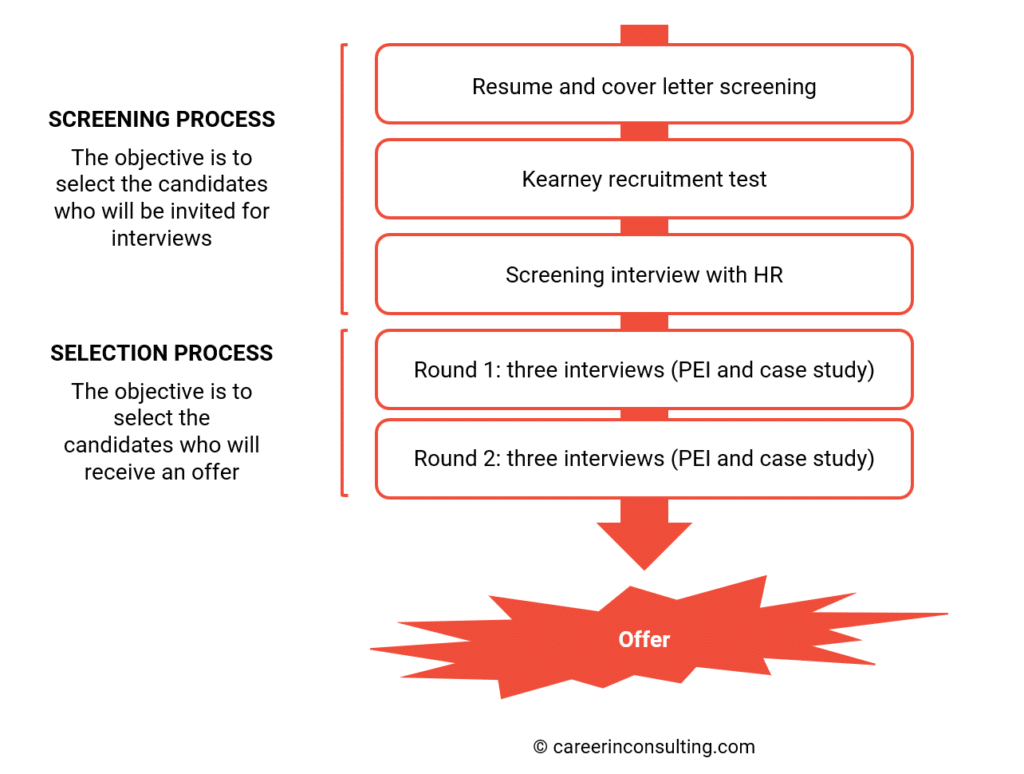
Most of the time, this process takes between two and three months, with often 14 days between steps on average.
Check this article to learn more about the exact preparation and interview timelines you should expect when interviewing at Kearney.
Show Your Uniqueness: The Resume And Cover Letter Screening
Your resume, with a cover letter, is the first step to a very lucrative job at Kearney.
Yet, less than 30% of applicants receive a call for an interview.
So, what is Kearney looking for when screening your resume and cover letter?
First, Kearney Is Looking For Academic Performance
A recent study from poetsandquants.com shows which schools are the top MBA feeders in the consulting industry.
For instance, top MBA programs with good placement in the consulting industry include MIT, London Business School, INSEAD, and Columbia Business School.
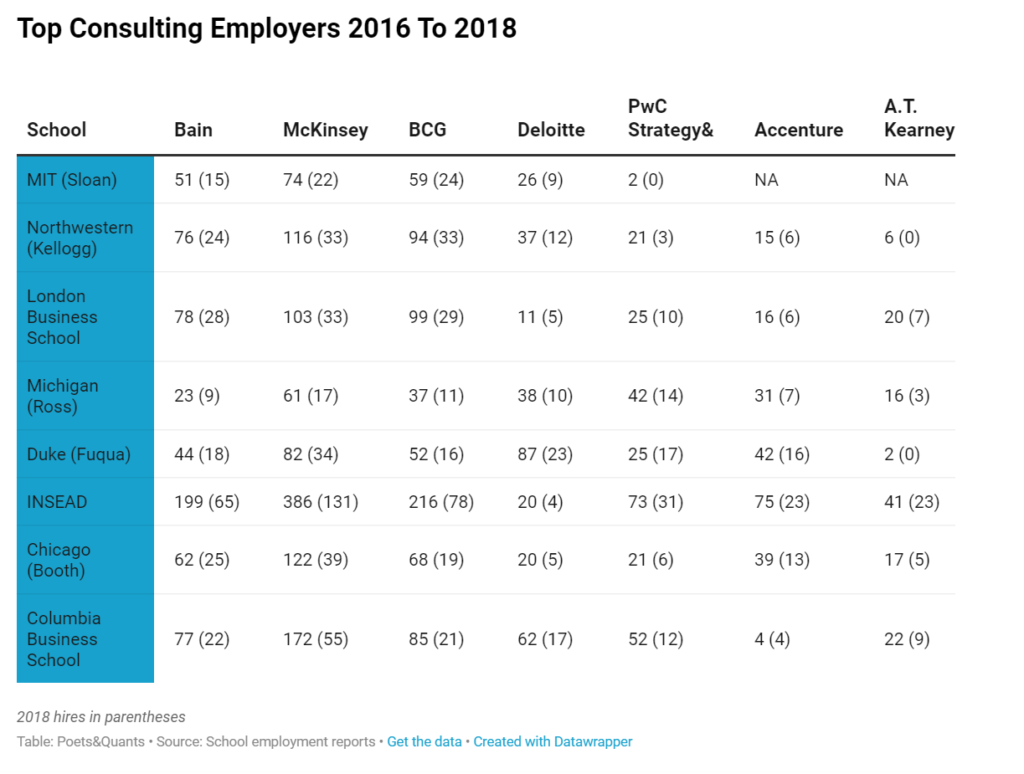
Secondly, Kearney Is Looking For Specific Qualities
Like any other top consulting firm, Kearney assesses if you possess the required skills to be a Kearney best-in-class consultant.
Those skills include your capacity to break down problems logically, prioritize the most important components of a problem, analyze data, connect different sources of information to derive conclusions, etc.
And if you want to develop those skills to ace your case interviews, I’ve created a full (and free) course here.
In this free course, you’ll find plenty of examples to turn your Kearney interviews into a lucrative job offer.
You can sign up for free for this case interview course.
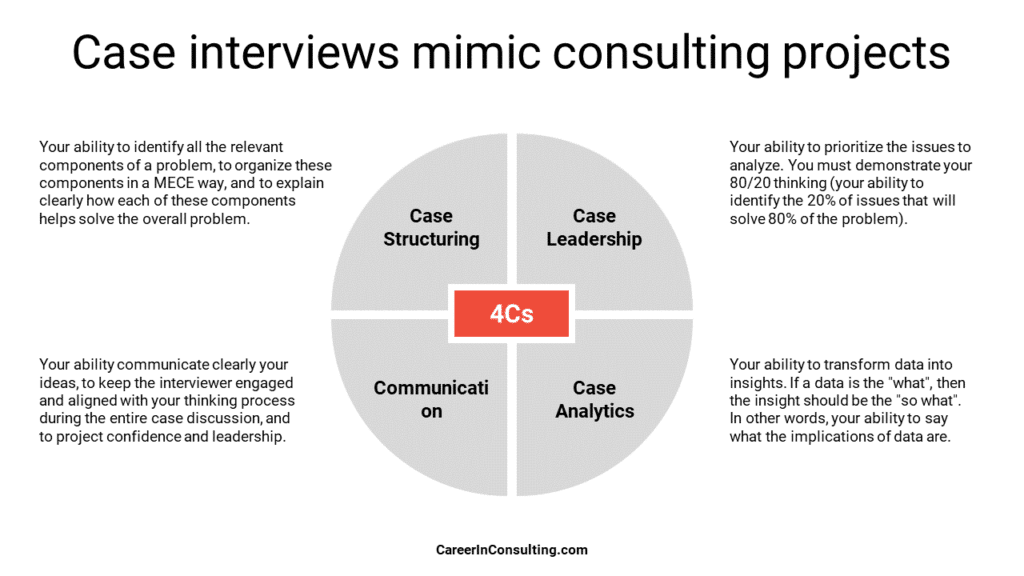
Furthermore, Kearney is looking for people with certain characteristics.
Why?
Because if you possess these characteristics, Kearney knows that you’ll fit their culture and potentially become a top consultant.
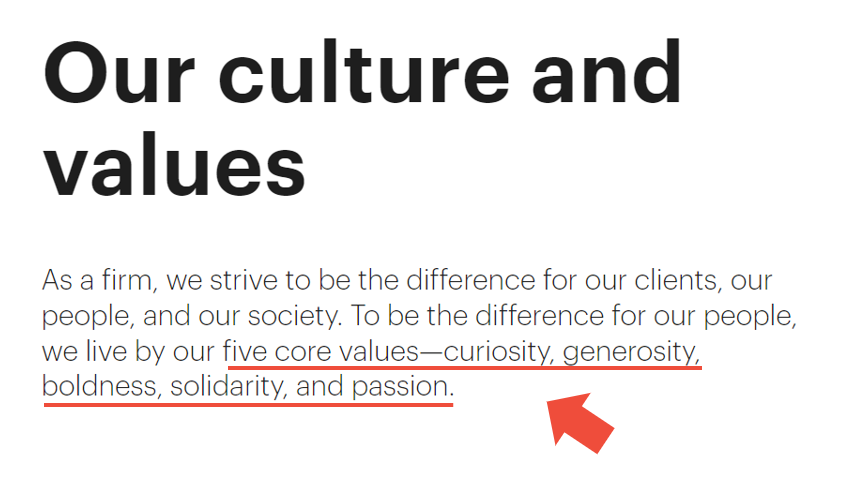

Therefore, all your resume and cover letter content should demonstrate that you have mastered these skills and characteristics.
To be more precise, your resume and cover letter content must show how you used these skills and the IMPACT you had.
Lastly, Kearney Wants To Understand Your Motivation To Join Them
Kearney wants to understand your motivation to join Kearney: Are you genuinely interested in joining Kearney over McKinsey, BCG, or Bain?
Thus, your cover letter must show that you have researched the firm, talked to its consultants, and have persuasive and tailored arguments for why Kearney is your first choice.
Are your cover letter and resume ready for applications?
Check these 2 articles to learn how to write winning resumes and cover letters and get many examples: consulting resume, a step-by-step guide (2023), and writing a persuasive and customized cover letter.
Don't Stress Out: The HR Screening Interview
In most cases, the HR screening interview is conducted by phone and is aimed at briefly reviewing your background.
For instance, the HR screening interview can include a list of questions such as :
Background questions: for example, “Tell me about yourself” or “Describe your work history.”
Motivational questions: “Why are you interested in consulting?” and “Why Kearney”?
Specific skill-based questions: for example, “Tell me about a time when you had to solve a problem in a team”
For this stage, you can expect a 20-minute interview.
Note: more on how to answer those questions later in this guide.
Show Your Logical Reasoning: The Kearney Recruitment Test
As a Business Analyst at Kearney, you will spend much time reading and analyzing data (from a graphical chart or an Excel spreadsheet).
Besides, you will have to derive insights from these data and connect these insights to your client’s problem.
The Kearney Recruitment Test assesses your ability to complete these tasks well.
In other words, the Kearney Recruitment Test (or Kearney Screening Test) assesses your ability to do the job: if you do well on the test, it indicates that you will perform well as an Analyst.
Indeed, this test has been designed to assess how you use deductive, inductive, and quantitative reasoning abilities to solve problems logically.
You’ll have to answer 40 multiple-choice GMAT-like questions in 60 minutes.
The multiple choice test is divided into three parts that assess your quantitative and verbal reasoning.
You are not allowed to use a calculator during the test.
In addition to facing challenging questions, candidates are typically under a lot of time pressure
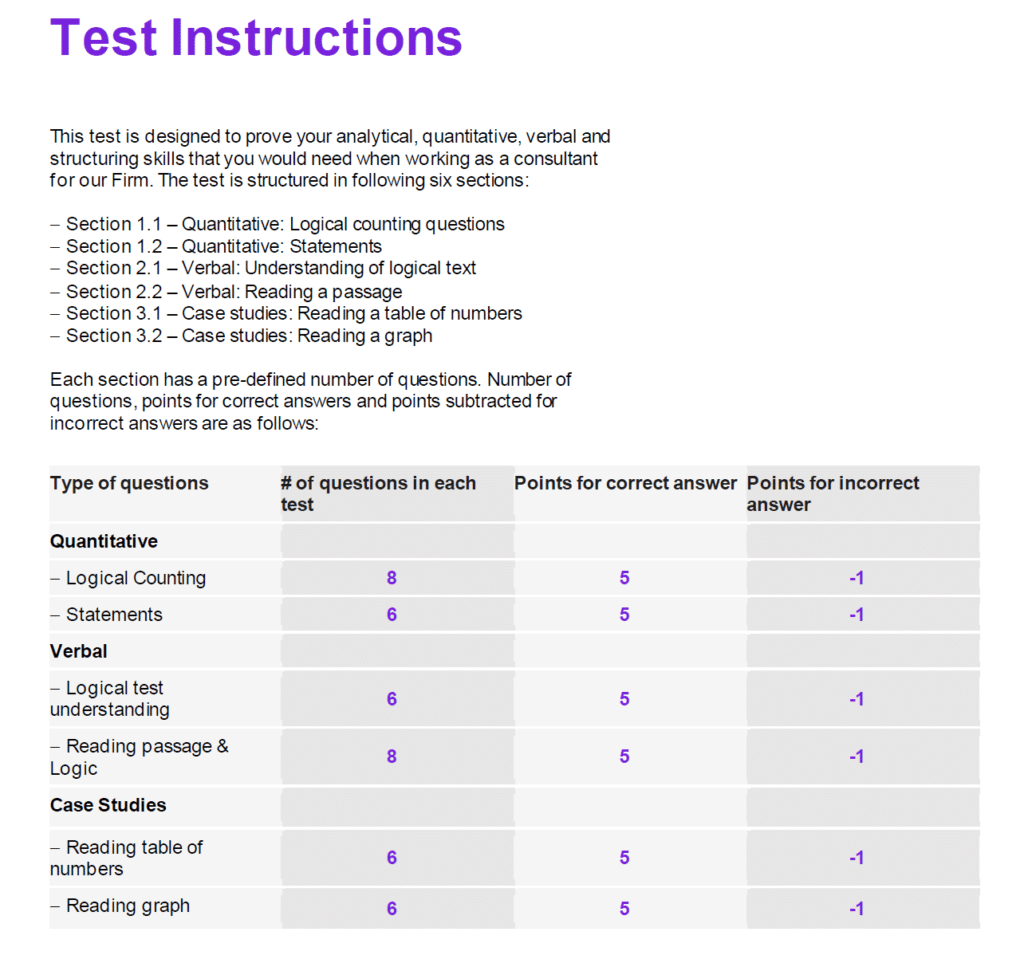
Get 4 Complete Case Interview Courses For Free

You need 4 skills to be successful in all case interviews: Case Structuring, Case Leadership, Case Analytics, and Communication. Join this free training and learn how to ace ANY case questions.
Do NOT Neglect It: The Personal Experience Interview (PEI)
After the screening process, there is a selection process consisting of multiple interviews.
First and foremost, I want to point out a mistake made by too many candidates:
Do NOT neglect your preparation for this part of the interview.
Indeed, the PEI counts for 50% of your assessment. In other words, candidates often fail to secure an offer after falling flat on the PEI – even with perfect case-cracking skills.
What To Expect During The PEI
During each of your Personal Experience Interviews, you can expect the four following types of questions:
First, “Tell me about yourself” or “Walk me through your resume.”
Then, “Why Consulting?“.
Thirdly, “Why Kearney?“.
Finally, between one and five behavioral interview questions.
You can expect the PEI (or fit interview) to last between 20 and 40 minutes.
Now, let’s go through these 4 types of questions.
Tell Me About Yourself
As I write in Tell Me About Yourself: How to Answer This Question, you never get a second chance to make a first impression.
This question, or common variants such as “Walk me through your resume,” is an easy and open-ended start to a conversation where your interviewer wants to know the following:
- What are your motivations, and what drives you?
- Which problems you had to solve, and how you solved them?
- What is your academic background?
- How do you deal with people?
- What impact have you had in the past?
Why Consulting?
A natural question following “Tell me about yourself” is “Why consulting?”.
Because the second most important thing that Kearney wants to know after who you are is:
- if you understand what Consulting is,
- and if you are truly interested in pursuing a career in that industry.
Why’s that?
Because Kearney doesn’t want you to leave after six months after you realize that the consulting lifestyle doesn’t fit your objectives.
So, whether Consulting is a thoughtful career choice or an “I don’t know what to do, let’s try” career choice, there are many good reasons why Consulting can be a good opportunity.
7 Reasons Why Consulting Can Be A Good Career Opportunity
- #1 - It's a good career choice after University if you don't know what to do: if you don't know what to do after University or after your MBA (you're not alone!), then Consulting is a safe bet. You'll have the opportunity to explore which career, sector or specialty is right for you
- #2 - You'll have a strong impact: you'll have the opportunity to work on and solve the most pressing problems faced by big corporations
- #3 - You'll have a strong exposure to C-level Executives: early on in your career, you'll work directly for CEOs, CFOs, CMOs, etc. and start developing the soft skills to become a senior Executive later
- #4 - You'll learn a lot: Consulting firms invest a lot in training their consultants. In addition, the feedback culture is very strong and you'll get full performance reviews regularly
- #5 - You'll work with bright people: consultancies pride themselves on hiring bright and interesting people. Plus, with 3-month projects on average, you'll meet a lot of different people in consulting
- #6 - You'll have the opportunity to work in an international environment: large consultancies sell work to businesses and governments all around the world
- #7 - You'll have access to an amazing alumni network: having worked in a consulting firm will give you access to its alumni network that will help you throughout your career
2 Other Reasons Why Consulting Can Be A Good Career Opportunity (But You Can't Tell Them To Your Interviewer)
- #8 - You'll have great exit opportunities: headhunting firms or big corporations love ex-consultants. Even now, 5 years after I left Consulting, head hunters still contact me on Linkedin to point out interesting opportunities
- #9 - You'll earn a lot of money: consulting is also known as a very well-paid industry. The average base salary for a McKinsey Associate is $127,000 a year according to Glassdoor. Plus, your salary will increase between 10% and 25% each year
Besides listing a couple of reasons why you want to pursue a career in consulting, a compelling answer should explain WHY these reasons are important for you.
Check this article to learn how to craft a compelling answer to the “Why consulting?” question.
Why Kearney?
Next, “Why Kearney?” : This question evaluates your motivation to join Kearney.
I have explained in this article how to have a compelling answer to this question.
Behavioral Interview Questions
Next, your interviewer will ask you between 1 and 5 behavioral interview questions.
For instance:
- Describe a challenging situation when you have had to work hard to achieve something, in a limited time, outside your comfort zone
- Tell me about a time when you have had to work with someone with an opposing opinion
- Share an example where you effectively worked with people with different backgrounds
- Revisit a time when you experienced significant change or encountered an ambiguous situation and share the actions you took to adapt to the new circumstances
- Discuss a hypothetical client scenario to help us understand how you structure tough, ambiguous challenges, identify important issues, deal with the implications of facts and data, formulate conclusions and recommendations, and articulate your thoughts
Related articles:
- The McKinsey PEI to understand in-depth how to ace your fit interviews
- The STAR framework revisited to craft amazing stories based on your experiences
Be Exceptionally Structured: The Case Interview
The Case Interview Is Another Problem-Solving Test
Kearney believes the best way to assess your problem-solving skills is to discuss a real client scenario with you.
This helps them understand how you structure tough, ambiguous business challenges, identify important issues, deal with all the implications of facts and data, formulate conclusions and recommendations, and articulate your thoughts in a fast-moving discussion
For instance, watch the following video with a candidate solving a market sizing question:
Interviewer Led vs. Candidate Led
The Kearney case interview follows the candidate-led case study interview format.
What does that mean?
First, your interviewer will present a problem.
Then, you must ask clarifying questions to define clearly the problem.
Next, you must structure an approach to solve this problem.
And you, the candidate, take the reins, guiding the interviewer through your approach.
It’s your stage, and interviewers are more spectators.
Finally, your interviewer will ask you a set of pre-determined questions, regardless of what your initial structure is.
For instance, here are the types of questions you can have:
- Problem structuring – organize the problem into an issue tree
- Trend analysis – review a graph and synthesize information relevant to the client
- Quantitative analysis – solve a simple mathematical calculation without a calculator and synthesize the results for the client
- Synthesis – the partner or client CEO is in the elevator with you. What do you recommend they do?
See each of these questions like a “mini” case:
You will have to understand the problem, develop a mini structure, ask for additional data (if necessary), and come to a conclusion that answers the question.
Good examples of interviewer-led cases can be found in the sample cases on the Kearney website.
Furthermore, you can read my free case interview guide.
Kearney Wants You To Succeed
I want you to succeed, too. The internet holds hundreds of example cases. I recently shared a list of 250+ practice cases.
Related article: 11 must-know frameworks to ace your case interviews.
You’re Almost Done: Ask the Interviewer Great Questions
You’ve made it through the behavioral and case study portions.
Now, the interviewer asks if you have any questions.
Kearney is genuinely interested in your questions. Interviewers want to know you are passionate about consulting and working at Kearney.
Here are some ideas for great questions:
- Make a connection with your interviewer. Ask questions about their background and their current work that interest you
- Explore the culture of the office at which you are interviewing
- Clarify the structure of the office, Kearney, or client engagements
You can read this article to build your list of smart questions to ask at the end of your interviews.
The Infamous Blacklist: Does It Exist? And How to Overcome It
The jury is out on if there is a Kearney blacklist.
Here’s what I do know: only apply if you are ready to interview.
Management consulting is a destination job for university programs and experienced hires.
Competition is strong.
For instance, if you do not pass the interviews, consulting firms will request you wait 12-18 months until you reapply.
Even then, Kearney may want to see a significant career change as evidence your skills have improved to pass another set of interviews, such as through a graduate degree, significant promotion, or work at a top-tier company.
Don’t dwell on the question of the blacklist, but remember, competition is tough. Be confident before you interview.
Offered an interview but not feeling ready? I can help you prepare in as little as 4 weeks.
The Kearney Recruitment Process: Conclusion
To conclude, you now better understand the essentials of the Kearney interview process.
Curious about the recruitment process for other top firms? Read more here:
Now I want to hear from you:
Do you have any questions about the process?
With which part of the process do you struggle the most?
Leave a comment below.
Sébastien
Get 4 Complete Case Interview Courses For Free

You need 4 skills to be successful in all case interviews: Case Structuring, Case Leadership, Case Analytics, and Communication. Join this free training and learn how to ace ANY case questions.
SHARE THIS POST
